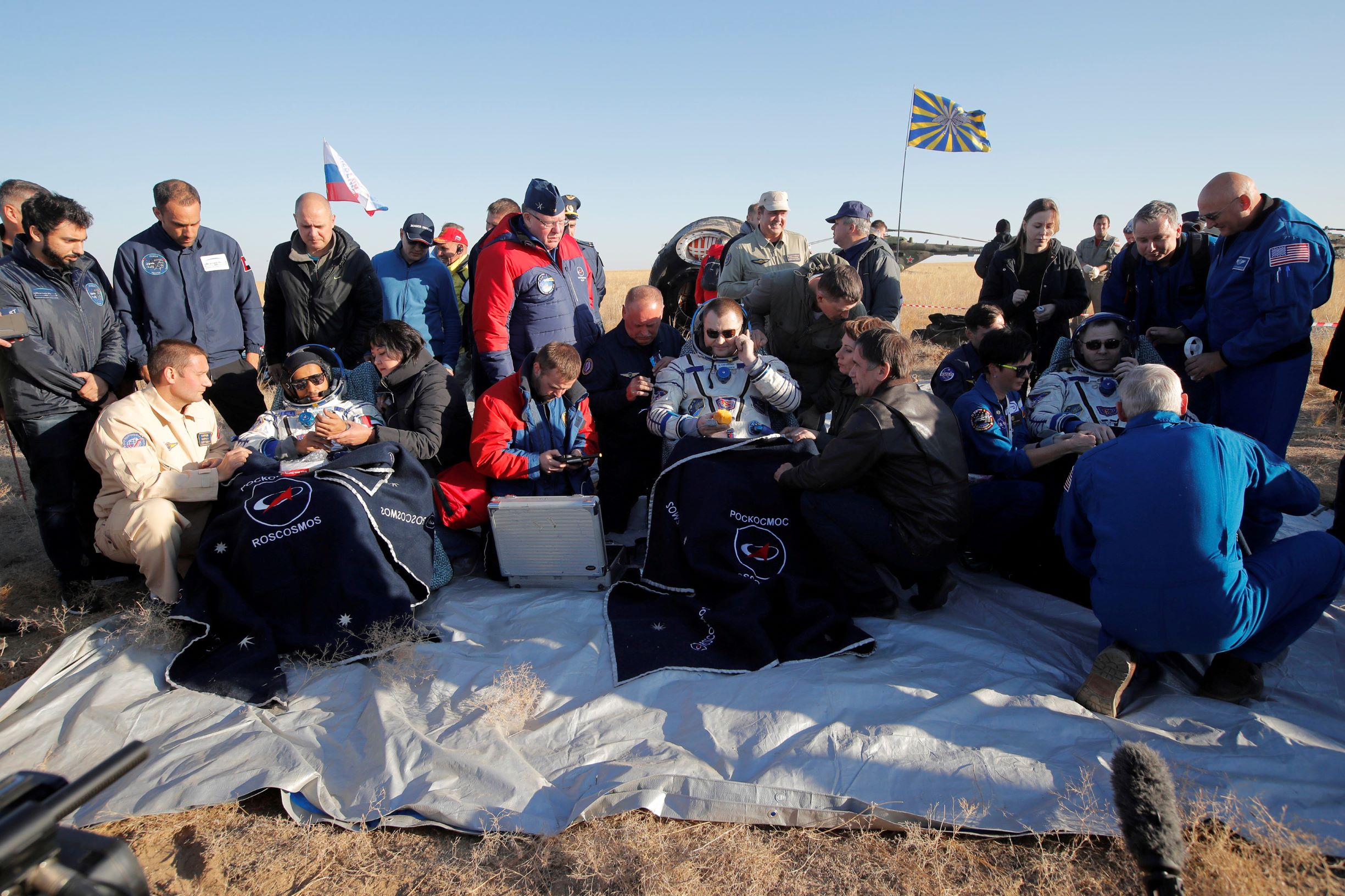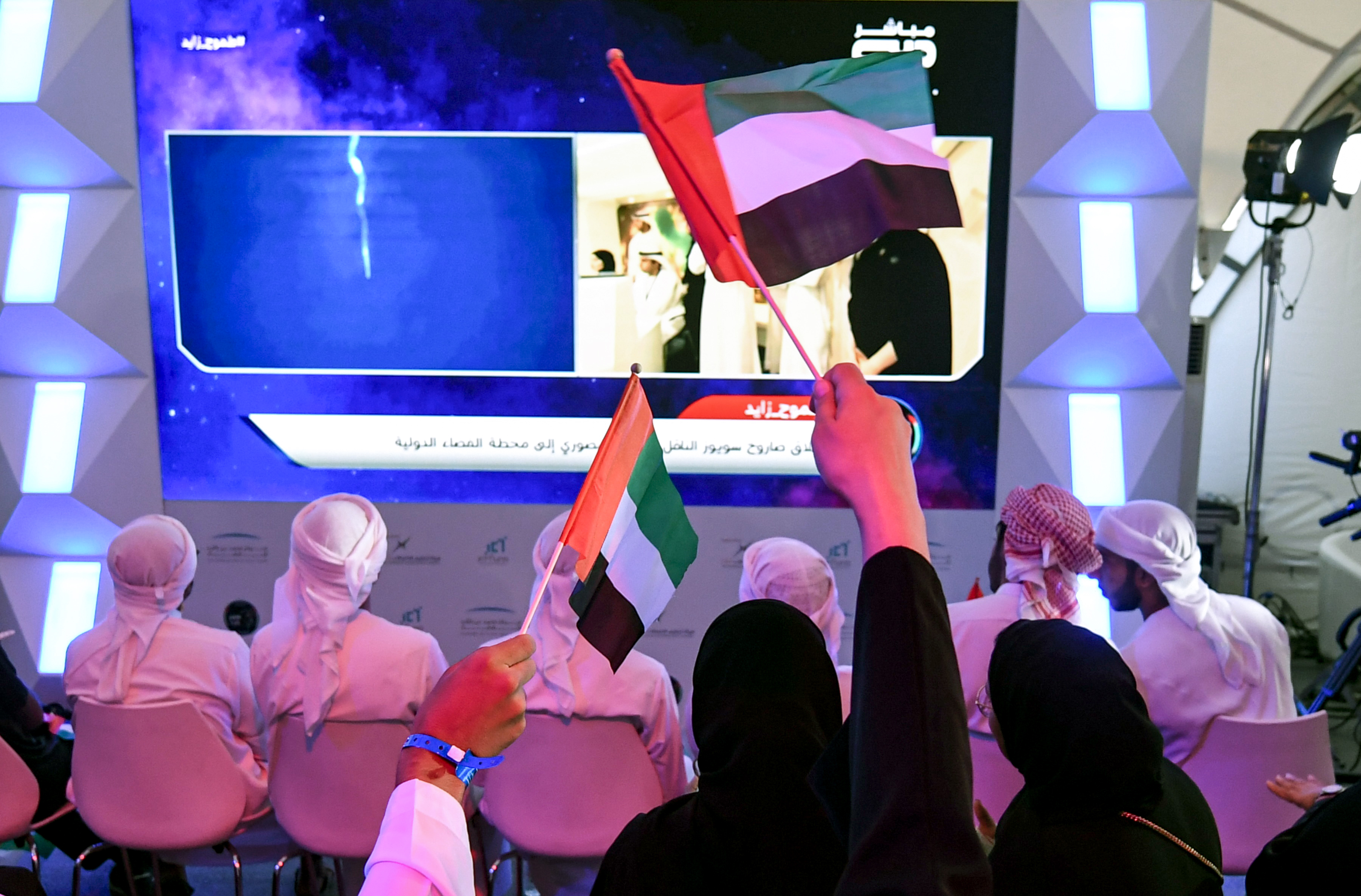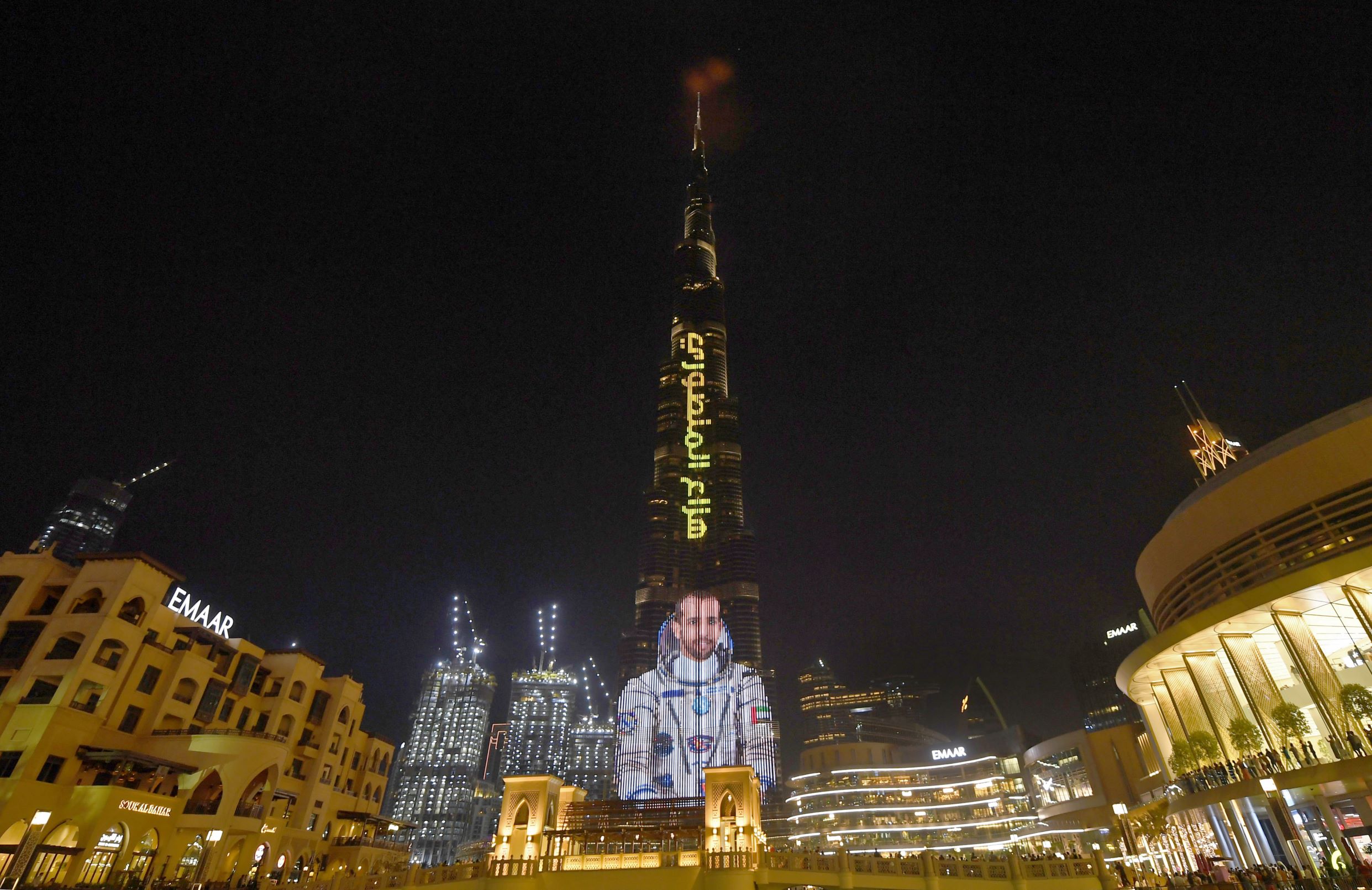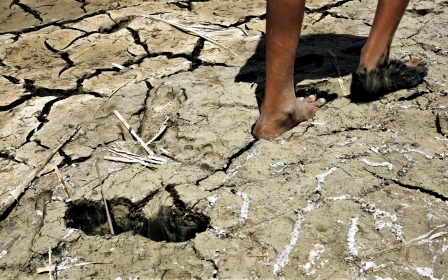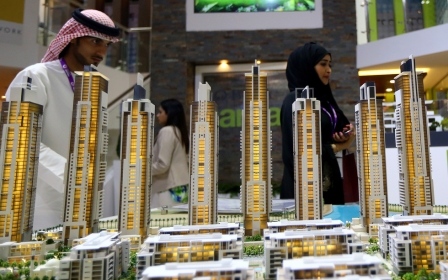First Arab on ISS returns to earth following eight-day mission
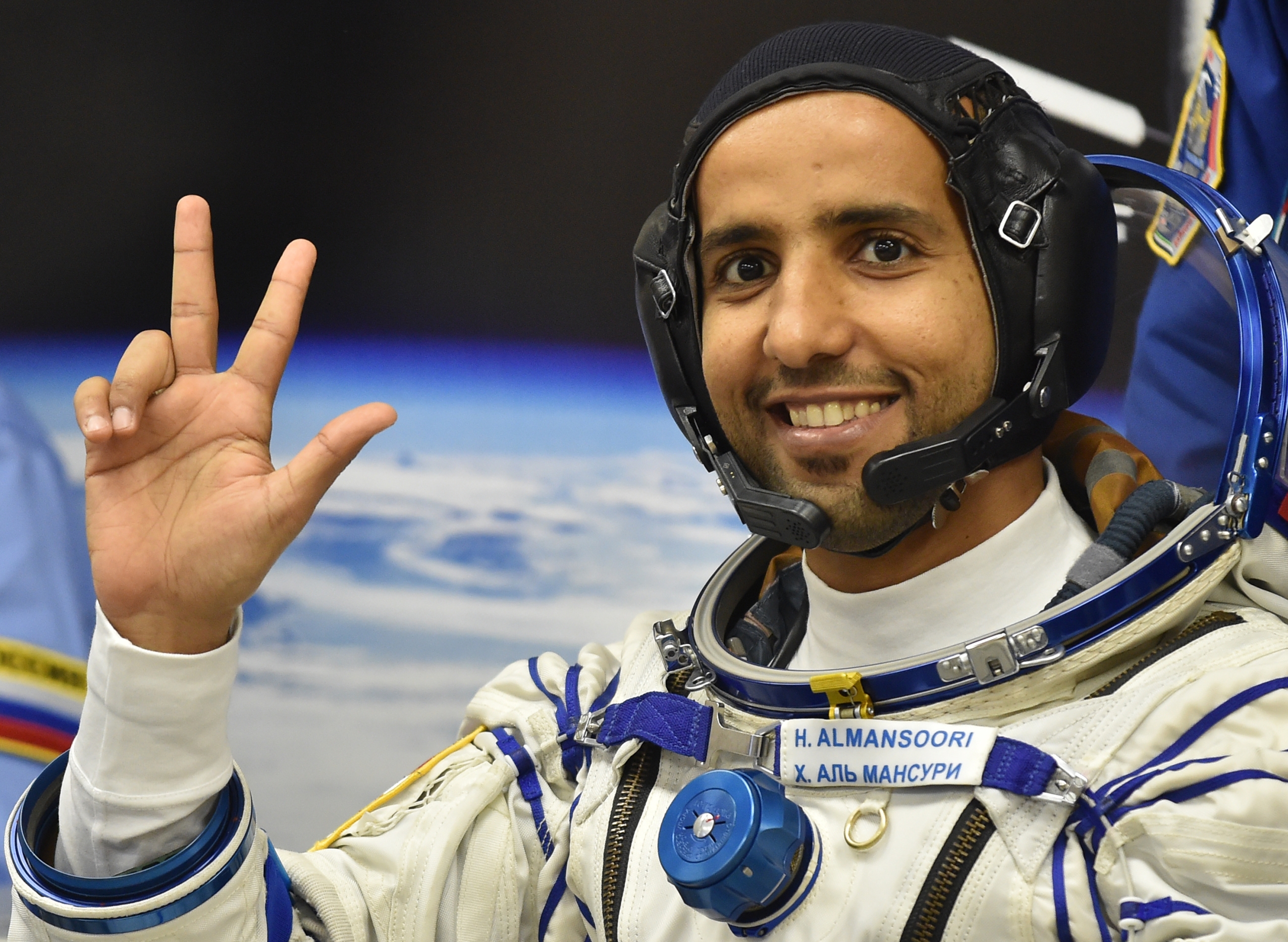
The first Arab to reach the International Space Station (ISS) has returned to earth on Thursday following a short but historic mission to the orbital lab.
Hazzaa al-Mansoori, from the United Arab Emirates, touched down in the Kazakh steppe at 6:59am ET (1059 GMT) after spending eight days at the ISS, NASA confirmed. He went onboard the ISS on 25 September with two crewmates, Russian cosmonaut Oleg Skripochka and NASA astronaut Jessica Meir.
For his return on Thursday, Mansoori was travelling in a Soyuz spacecraft along with United States’ NASA astronaut Nick Hague and Russia’s Roscosmos cosmonaut Alexey Ovchinin, who both survived a failed launch to the ISS last year.
New MEE newsletter: Jerusalem Dispatch
Sign up to get the latest insights and analysis on Israel-Palestine, alongside Turkey Unpacked and other MEE newsletters
While the 35-year-old Emirati’s mission lasted just over a week - much shorter than the 203 days that Hague and Ovchinin spent at the ISS - he made the most of it by sharing his experience on social media throughout his space expedition.
Tweeting in both English and Arabic, Mansoori kept his followers updated on his life in space and posted stunning photos taken from the ISS showing landmarks such as Mecca, Islam's holiest site, and cities in the UAE including Abu Dhabi.
The former pilot was selected from thousands of applicants to be the first Emirati astronaut onboard the ISS, but he’s not the first Arab to have been to space.
Before the Emirati, two other people from Arab countries had travelled above earth’s surface. Sultan bin Salman al-Saud of Saudi Arabia was the first Arab and Muslim to go into space with a NASA space shuttle mission in 1985. Two years later, in 1987, Muhammed Farsi from Syria went to the Russian MIR space station.
Mansoori’s trip is evidence of the UAE's growing ambitions in space. The country aims to send an unmanned probe to orbit Mars by 2021 to coincide with the 50th anniversary of the founding of the state.
Middle East Eye delivers independent and unrivalled coverage and analysis of the Middle East, North Africa and beyond. To learn more about republishing this content and the associated fees, please fill out this form. More about MEE can be found here.


